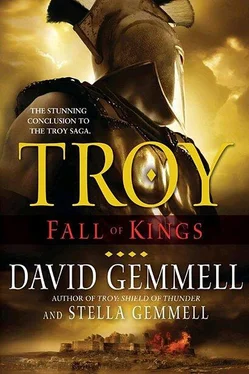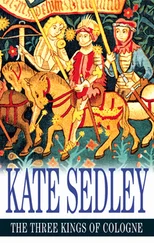Stella Gemmell - Fall of Kings
Здесь есть возможность читать онлайн «Stella Gemmell - Fall of Kings» весь текст электронной книги совершенно бесплатно (целиком полную версию без сокращений). В некоторых случаях можно слушать аудио, скачать через торрент в формате fb2 и присутствует краткое содержание. Год выпуска: 2011, Жанр: Исторические приключения, на английском языке. Описание произведения, (предисловие) а так же отзывы посетителей доступны на портале библиотеки ЛибКат.
- Название:Fall of Kings
- Автор:
- Жанр:
- Год:2011
- ISBN:нет данных
- Рейтинг книги:4 / 5. Голосов: 1
-
Избранное:Добавить в избранное
- Отзывы:
-
Ваша оценка:
- 80
- 1
- 2
- 3
- 4
- 5
Fall of Kings: краткое содержание, описание и аннотация
Предлагаем к чтению аннотацию, описание, краткое содержание или предисловие (зависит от того, что написал сам автор книги «Fall of Kings»). Если вы не нашли необходимую информацию о книге — напишите в комментариях, мы постараемся отыскать её.
Fall of Kings — читать онлайн бесплатно полную книгу (весь текст) целиком
Ниже представлен текст книги, разбитый по страницам. Система сохранения места последней прочитанной страницы, позволяет с удобством читать онлайн бесплатно книгу «Fall of Kings», без необходимости каждый раз заново искать на чём Вы остановились. Поставьте закладку, и сможете в любой момент перейти на страницу, на которой закончили чтение.
Интервал:
Закладка:
Hektor took a deep breath and transferred his gaze to the city. “And the route?” he asked.
“The entire regiment will ride up through the lower town, then through the Scaean Gate and up the avenue to the palace, where Priam will greet them and give awards to the heroes you have named. This will be followed later by a feast of thanksgiving in the Square of Hermes. There Father hopes you will make a speech. He suggests you tell the gathering about the victory at Carpea, as it is the most recent.”
“Dardanos is the most recent,” Hektor pointed out.
“Yes, it is, but the death of Halysia makes it too sad a tale.”
“Of course,” Hektor said. “We cannot have tales of blood and death spoil a story about war.”
Khalkeus the bronzesmith sat in the torchlit megaron of Dardanos, rubbing at the numbed fingers of his left hand. After a while sensation returned, the tips beginning to tingle. Then the trembling started. He stared down at the palsied limb, willing it to stop. Instead it worsened. It was as if invisible fingers had grasped his wrist and were shaking it. Irritated now, he made a fist, then crossed his arms so that no one would see the tremors.
Not that there was anyone to see. The Gyppto, Gershom, had told him to wait in this cold, empty place for Helikaon. Khalkeus stared around the megaron. Blood had stained the mosaic floor. The splashes and spatters had dried, but elsewhere, on the rugs and in the deeper grooves of the mosaic, it remained sticky and uncongealed. A broken sword lay by a wall.
Khalkeus strolled across and picked up the weapon. It had snapped halfway down the blade. Khalkeus ran his thick fingers over the metal. Poorly cast, with too much tin, he decided. Copper was a soft metal, and the addition of tin created the harder, more useful bronze. Yet this blade had been hardened too much, becoming brittle, and had snapped on impact.
Returning to his couch, Khalkeus sat once more. His hand had stopped trembling, and that was a blessing. But the palsy would return. It was the curse of bronzesmiths. No one knew what caused it, but it always began in the fingertips, then moved to the toes. Soon he would be limping along with the aid of a staff. Even the god of smiths, Hephaistos, was said to be lame. Old Karpithos, back in Miletos, had gone blind in the end. He had sworn it was the melting copper putting poison in the air. Khalkeus had no way of testing that theory, but he favored it enough to have his forges built outside now so that any poisons would be dissipated by fresh air.
“You cannot complain,” he told himself aloud. Fifty years old, and only now does the trembling start. Karpithos had endured the tremors for close to twenty years before his sight had failed.
Time drifted by, and Khalkeus, never a patient man, began to grow more irritated. Rising from the couch, he walked out into the night air.
Black smoke was drifting up from the center of the fortress, where the kitchens still smoldered.
Despite their obvious enthusiasm for destruction, Khalkeus thought, the enemy had been largely incompetent. Many of the burned buildings had suffered superficial damage only. And the support struts of the bridge called Parnio’s Folly had been ignored by the Mykene. They had hacked at the bridge planks with ax and sword to weaken them, then poured oil on the flat timbers before setting them ablaze. The idiots had not realized it was the support struts, set deeply into the cliffs on both sides, that gave the structure its strength. Whoever had designed them had been a master at his craft. With them still in place, undamaged by fire, the bridge could be rebuilt within days.
Khalkeus glanced to his right. In the moonlight he saw three men hauling a wide handcart. The bodies of several women and children had been laid on the cart. A wheel struck an uneven patch on the road, causing the vehicle to shudder. One of the dead women slid sideways. The movement caused her torn tunic to ride up, exposing her buttocks. Instantly the three men stopped pulling the cart, and one of them hurried back to cover her nakedness.
How strange, Khalkeus thought. As if she would care.
Khalkeus wandered back into the megaron. Several servants were placing fresh torches in brackets on the wall. Khalkeus called out to one of them. “You there! Bring me some bread and wine.”
“And you are?” the man asked, his tone surly.
“Hungry and thirsty,” Khalkeus replied.
“Are you a guest of the king?”
“Yes. I am Khalkeus.”
The servant grinned. “Truly? The Madman from Miletos?”
Khalkeus sighed. “I am not from Miletos, but yes, that is what some idiots call me.”
The man brought him a platter of black bread, some cheese, and a jug of watered wine. The bread was not fresh, but smeared with the cheese, it was palatable enough. Khalkeus sipped his wine and glanced toward the great doors and the moon shadows beyond them. He wished Helikaon would come so that he could conclude his business here and head back to Troy and his new forges.
His first attempts at smelting metal from the red rocks had proved disappointing. Even the hottest furnace had produced a useless spongy gray mass. The fires, he decided, needed to be even hotter, and to that end Khalkeus had ordered the construction of a new furnace on the northern plateau of Troy, where the wind was keen.
But he needed more time and more gold.
He was convinced that Helikaon would understand. If Khalkeus succeeded, the rewards would be colossal. Swords, spears, arrowheads, and armor could be fashioned from the red rocks, which were plentiful all across the east. No need for expensive tin to be shipped from far islands beyond the Great Green or soft copper from Kypros and other Mykene-held lands. Metal implements—plows, nails, barrel ties—could be produced at a fraction of the price of bronze.
The blazing torches were replaced twice before Helikaon returned. Flanked by five young men, he strode into the building, shouting for a servant to bring water. His handsome face was smeared with grime, his long dark hair tied back in a ponytail that reached his shoulders. Moving to the carved throne, the young king slumped down, leaned back, and closed his eyes. Several of the men with him began speaking. Khalkeus listened as they complained of the insurmountable difficulties facing them. This could not be done because of that, and that was impossible because of this. Khalkeus felt his irritation flare. Stupid men with lazy minds. Instead of solving problems, they wasted time seeking reasons why no solutions were available. Why Helikaon should allow such fools around him was a mystery.
A servant brought a silver wine cup and a jug brimming with cool water. Helikaon filled the cup and drained it.
A young man with a wispy red beard spoke up. “Rebuilding the bridge alone will take months, and there is not enough timber to reconstruct the warehouses and other buildings destroyed by the Mykene.”
“Nor enough carpenters and woodworkers,” another man added.
“And certainly not enough brains,” Khalkeus stormed, heaving his bulk upright. The men around the king stopped speaking and swung toward Khalkeus. He marched forward, staring them down. “I saw the remains of the bridge. It can be repaired in a matter of days. By the gods, Helikaon, I hope these morons are better fighters than they are thinkers.”
“My friends,” Helikaon said to the angry men around him, “this is Khalkeus. Now, before you decide to hate him, you should understand that he will not care. Everyone hates Khalkeus. So put aside your anger and leave us to talk.”
Khalkeus waited until the men had walked away, ignoring the cold glances they gave him as they passed. Then he approached Helikaon. “I am close to the answer,” he said, “but I need more gold.”
Читать дальшеИнтервал:
Закладка:
Похожие книги на «Fall of Kings»
Представляем Вашему вниманию похожие книги на «Fall of Kings» списком для выбора. Мы отобрали схожую по названию и смыслу литературу в надежде предоставить читателям больше вариантов отыскать новые, интересные, ещё непрочитанные произведения.
Обсуждение, отзывы о книге «Fall of Kings» и просто собственные мнения читателей. Оставьте ваши комментарии, напишите, что Вы думаете о произведении, его смысле или главных героях. Укажите что конкретно понравилось, а что нет, и почему Вы так считаете.












